SLD - Specific Learning Disorder
Specific learning disorder (SLD) includes dyslexia, dysgraphia and dyscalculia.
DYSLEXIA – In dyslexia or reading disorder children have difficulties in accurate and fluent word recognition. The primary underlying deficit involves difficulty in relating letters with sounds of one’s language (phonological processing). As a result, the child is slow and inaccurate in reading words, frequently guesses words while reading, unable to comprehend sentences and frequently makes spelling mistakes while writing.
DYSGRAPHIA – In dysgraphia, there is impairment in written expression. The writing skills are significantly below the expected level for a child’s age and education. The child makes excessive simple grammatical errors, is unable to use punctuations correctly, makes spelling errors, paragraphs are not organised and handwriting is very poor. Spelling mistakes are generally phonetic errors like “buk” for “book,” leeve” for “leave”.
DYSCALCULIA – Dyscalculia is impairment in mathematics. In this, the child may have difficulty in learning and remembering numbers, converting written problems into mathematical forms, remembering mathematical signs, understanding basic concepts of addition and subtraction and learning simple mathematical tables.

A proper diagnosis by a specialist is very important. Other conditions which may interfere with the diagnosis have to be ruled out. These are intellectual disability, global developmental delay, impairment in hearing or vision or other neurological or motor disorders.
Brain imaging studies have shown some parts of the brain which are involved in the causation of SLD, but there is a lot to know more. Unfortunately, there are no biological markers to diagnose SLD. Neuroimaging and genetic testing is also not helpful in the diagnosis of SLD as of now.
It is 2-3 times more common in males than in females.

Treatment – Remedial education for dyslexia aims at making the child understand the relation between sounds and spelling (phonemes). First the individual letter and sound association has to be mastered and then syllables and words are targeted.
In remedial education for dysgraphia, basic grammatical rules are reviewed, phonemes are taught, spellings are practised starting from 2-3 letter words with gradually increasing difficulty, letters are taught to write on a 4 lined page to improve handwriting.
Similarly, in remedial education for dyscalculia, basic mathematical skills are targeted. Child is educated about basics of counting numbers, identifying numbers, understanding principles of addition and subtraction, gradually increasing the understanding from single digit numbers to double digit numbers.
There are lot of more details about the treatment and things which should be taken care of with children with specific learning disorder. Consult your psychiatrist for more details.

